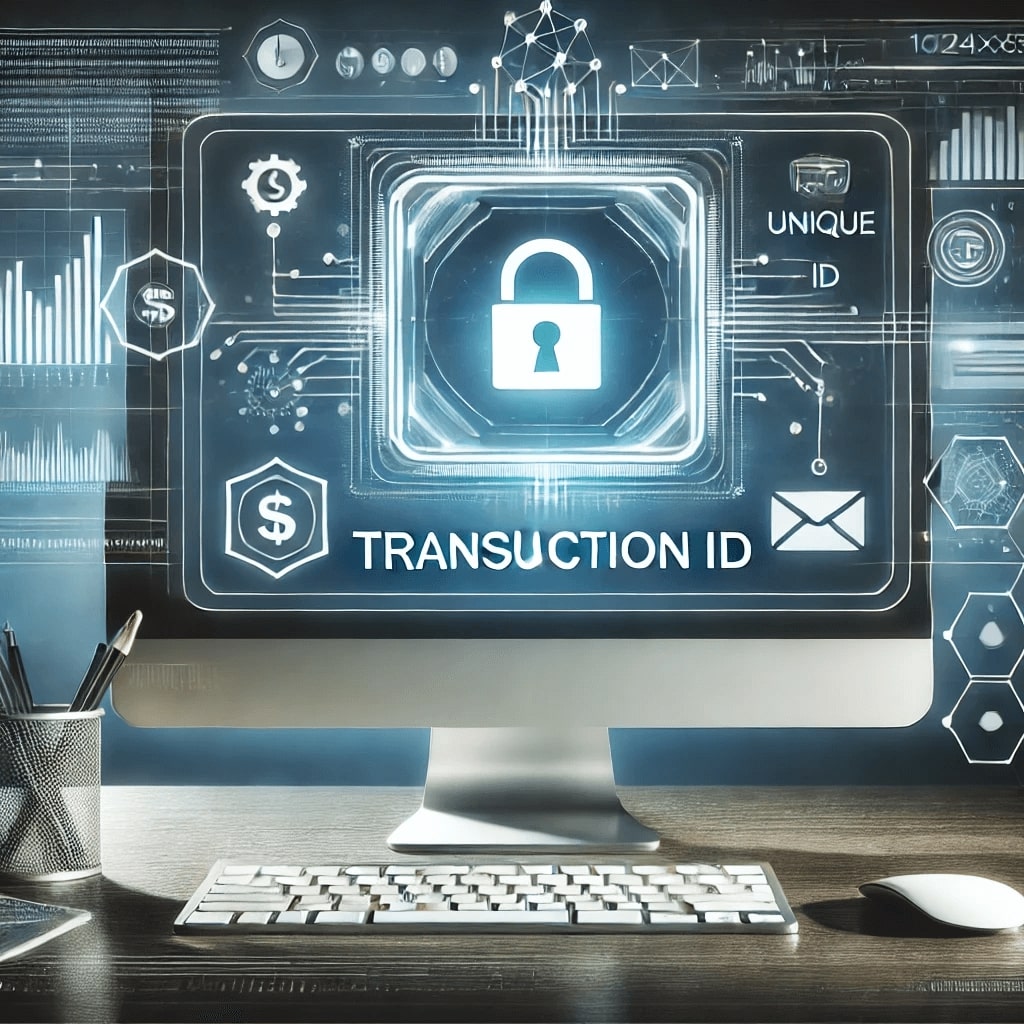
By dev October 4, 2024
In today’s digital age, financial transactions have become an integral part of our lives. Whether it’s making a purchase online or transferring funds between bank accounts, we rely on these transactions to be secure and efficient. One crucial element that ensures the smooth functioning of these transactions is the Transaction ID.
In this comprehensive guide, we will delve into the world of Transaction IDs, exploring their definition, importance, generation process, types, and uses. We will also discuss how Transaction IDs play a vital role in online banking and e-commerce, ensuring security and fraud prevention.
Additionally, we will address common challenges and issues associated with Transaction IDs and provide answers to frequently asked questions. By the end of this guide, you will have a thorough understanding of Transaction IDs and their significance in financial transactions.
Understanding the Basics: What is a Transaction ID?
A Transaction ID, also known as a Transaction Identifier or TXID, is a unique alphanumeric code assigned to each financial transaction. It serves as a digital fingerprint that distinguishes one transaction from another. Think of it as a virtual receipt or a tracking number that allows you to trace and verify the details of a specific transaction. Whether it’s a purchase, a transfer, or any other financial activity, the Transaction ID acts as a reference point for both the sender and the recipient, ensuring transparency and accountability.
The Importance of Transaction IDs in Financial Transactions

Transaction IDs play a crucial role in financial transactions for several reasons. Firstly, they provide a means of identification and verification. By having a unique Transaction ID, both the sender and the recipient can easily track and confirm the completion of a transaction. This helps in resolving any disputes or discrepancies that may arise during the process.
Secondly, Transaction IDs enable efficient record-keeping. Financial institutions and businesses can use these IDs to maintain accurate records of transactions, making it easier to reconcile accounts and identify any irregularities. This is particularly important for auditing purposes and ensuring compliance with regulatory requirements.
Furthermore, Transaction IDs enhance transparency and accountability. By providing a unique identifier for each transaction, they enable individuals and organizations to monitor and analyze their financial activities. This promotes trust and confidence in the financial system, as users can easily access and review their transaction history.
How Transaction IDs are Generated and Assigned
The process of generating and assigning Transaction IDs varies depending on the platform or system used for the transaction. In most cases, Transaction IDs are automatically generated by the system processing the transaction. This can be a bank’s internal system, an e-commerce platform, or a payment gateway.
The generation of Transaction IDs typically involves a combination of alphanumeric characters. These characters are randomly generated or derived from specific parameters such as the date, time, and user information. The resulting code is unique to each transaction and ensures that no two transactions have the same ID.
Once generated, the Transaction ID is assigned to the transaction and associated with the relevant user or account. This allows for easy retrieval and tracking of the transaction details whenever required.
Different Types of Transaction IDs and Their Uses

Transaction IDs can take various forms depending on the nature of the transaction and the platform used. Some common types of Transaction IDs include:
- Bank Transaction IDs: These are unique identifiers assigned to transactions conducted through banking systems. They are used to track and verify activities such as fund transfers, bill payments, and account deposits or withdrawals.
- E-commerce Transaction IDs: When making a purchase online, you may receive a Transaction ID that confirms the completion of the transaction. This ID is essential for tracking the shipment, resolving any issues with the order, or initiating a refund if necessary.
- Payment Gateway Transaction IDs: Payment gateways, such as PayPal or Stripe, generate Transaction IDs for each payment processed through their platforms. These IDs help in reconciling payments, managing refunds, and providing a record of the transaction for both the buyer and the seller.
- Cryptocurrency Transaction IDs: In the world of cryptocurrencies, Transaction IDs play a vital role in verifying and tracking transactions on the blockchain. Each transaction is assigned a unique ID, allowing users to trace the flow of funds and ensure the integrity of the transaction history.
The Role of Transaction IDs in Online Banking and E-commerce
In the fast-paced world of e-commerce and online payments, Transaction IDs play a pivotal role in ensuring smooth and secure transactions. Let’s explore how Transaction IDs contribute to the seamless functioning of e-commerce platforms and online payment systems:
- Order Tracking and Fulfillment: When a customer places an order online, a Transaction ID is generated and associated with that specific order. This ID allows both the customer and the merchant to track the progress of the order, from processing to shipping and delivery. It ensures transparency and accountability throughout the entire order fulfillment process.
- Refunds and Returns: In the event of a refund or return request, Transaction IDs are crucial for identifying the specific transaction and processing the request accurately. The Transaction ID serves as a reference point for the merchant to verify the original transaction and initiate the refund or return process.
- Customer Support and Dispute Resolution: Transaction IDs are invaluable in customer support and dispute resolution scenarios. When a customer contacts the support team with an issue or dispute, providing the Transaction ID helps the support team quickly locate and review the transaction details. This expedites the resolution process and ensures customer satisfaction.
How Transaction IDs Ensure Security and Fraud Prevention

One of the primary concerns in financial transactions is security and fraud prevention. Transaction IDs play a vital role in addressing these concerns and ensuring the integrity of transactions. Let’s explore how Transaction IDs contribute to security and fraud prevention:
- Authentication and Verification: Transaction IDs serve as a means of authentication and verification. By referencing the Transaction ID, both the sender and the recipient can confirm the legitimacy of the transaction. This helps in preventing unauthorized transactions and identity theft.
- Anti-Fraud Measures: Transaction IDs are often used in conjunction with other security measures to detect and prevent fraud. Financial institutions and payment gateways employ sophisticated algorithms and fraud detection systems that analyze Transaction IDs along with other transaction details to identify suspicious activities and flag potential fraud.
- Audit Trail and Compliance: Transaction IDs contribute to maintaining an audit trail and ensuring compliance with regulatory requirements. By associating each transaction with a unique Transaction ID, financial institutions and businesses can easily trace and review transaction details for auditing purposes. This helps in detecting and preventing fraudulent activities and ensures compliance with legal and regulatory frameworks.
Common Challenges and Issues with Transaction IDs
While Transaction IDs are essential for secure financial transactions, they are not without their challenges and issues. Some common challenges include:
- System Errors: Occasionally, system errors or glitches can result in the generation of incorrect or duplicate Transaction IDs. This can lead to confusion and difficulties in tracking and reconciling transactions.
- Delayed or Missing Transaction IDs: In some cases, users may experience delays in receiving their Transaction IDs, especially during peak transaction periods. This can cause frustration and uncertainty, as users are unable to track or verify their transactions in real-time.
- Incompatibility between Systems: Different financial institutions and businesses may use different systems for processing transactions. Incompatibility between these systems can result in issues with generating and recognizing Transaction IDs, leading to delays or errors in transaction processing.
- Security Breaches: Despite the security measures in place, there is always a risk of security breaches and unauthorized access to Transaction IDs. Hackers and fraudsters may attempt to intercept or manipulate Transaction IDs to gain access to sensitive information or carry out fraudulent activities.
Frequently Asked Questions about Transaction IDs
Q.1: What should I do if I don’t receive a Transaction ID for my transaction?
If you don’t receive a Transaction ID for your transaction, it is advisable to contact the relevant financial institution or business to inquire about the issue. They will be able to assist you in resolving the problem and providing you with the necessary information.
Q.2: Can Transaction IDs be used to reverse or cancel a transaction?
Transaction IDs alone cannot reverse or cancel a transaction. However, they serve as a reference point for initiating the necessary actions to resolve any issues or disputes related to the transaction. You should contact the relevant financial institution or business to discuss the specific steps required for reversing or canceling a transaction.
Q.3: Are Transaction IDs confidential?
Transaction IDs themselves are not considered confidential information. However, they are part of the transaction details, which may include sensitive information such as account numbers or personal details. It is crucial to keep your Transaction IDs and associated information secure to prevent unauthorized access or fraud.
Q.4: Can Transaction IDs be reused?
Transaction IDs are typically unique to each transaction and should not be reused. Reusing Transaction IDs can lead to confusion, errors, and potential security risks. It is essential to generate a new Transaction ID for each transaction to ensure accurate record-keeping and traceability.
Conclusion
Transaction IDs are an integral part of financial transactions, providing identification, verification, and record-keeping capabilities. They play a vital role in online banking and e-commerce, ensuring transparency, security, and fraud prevention. While Transaction IDs come with their challenges and issues, they are essential for maintaining trust and confidence in the financial system. By understanding the basics of Transaction IDs and their significance, users can navigate the world of financial transactions with confidence and peace of mind.